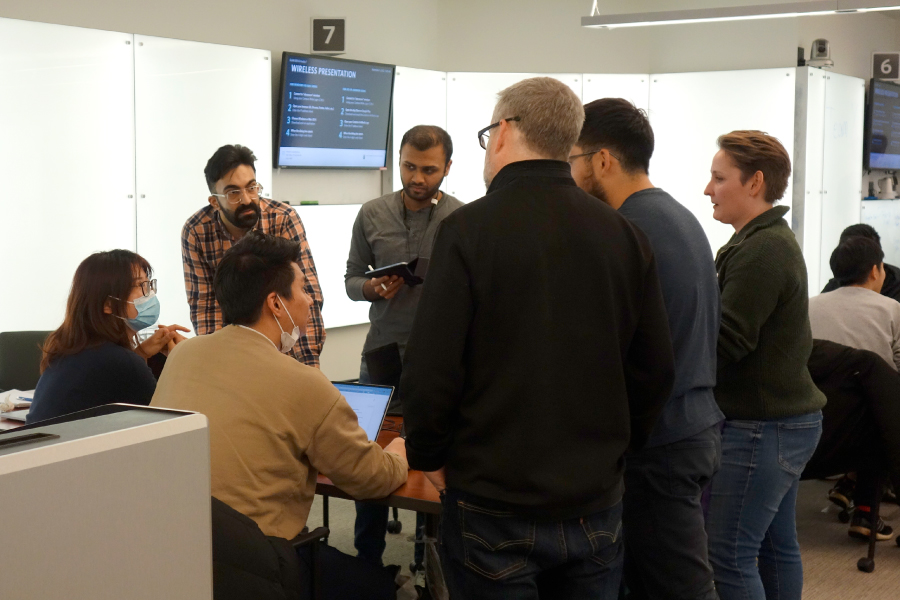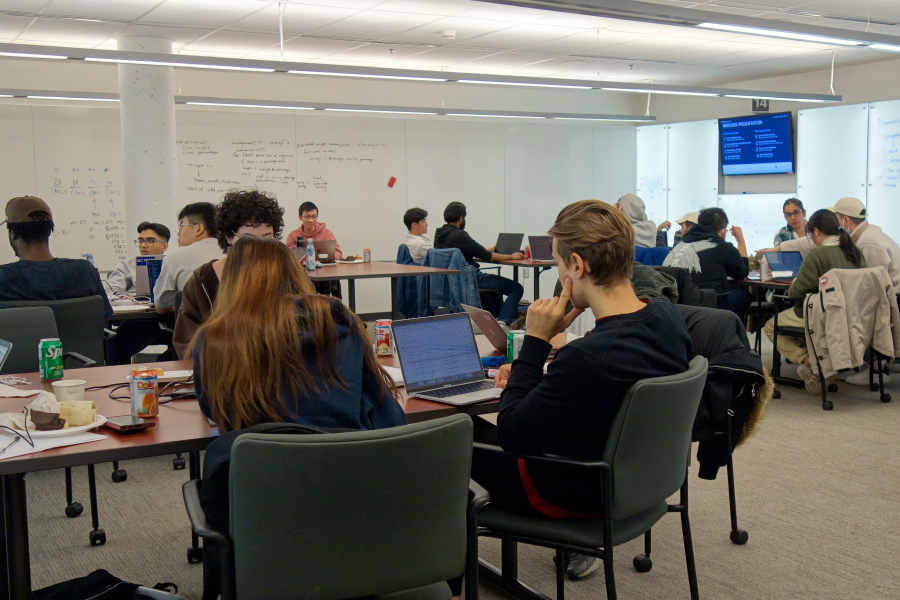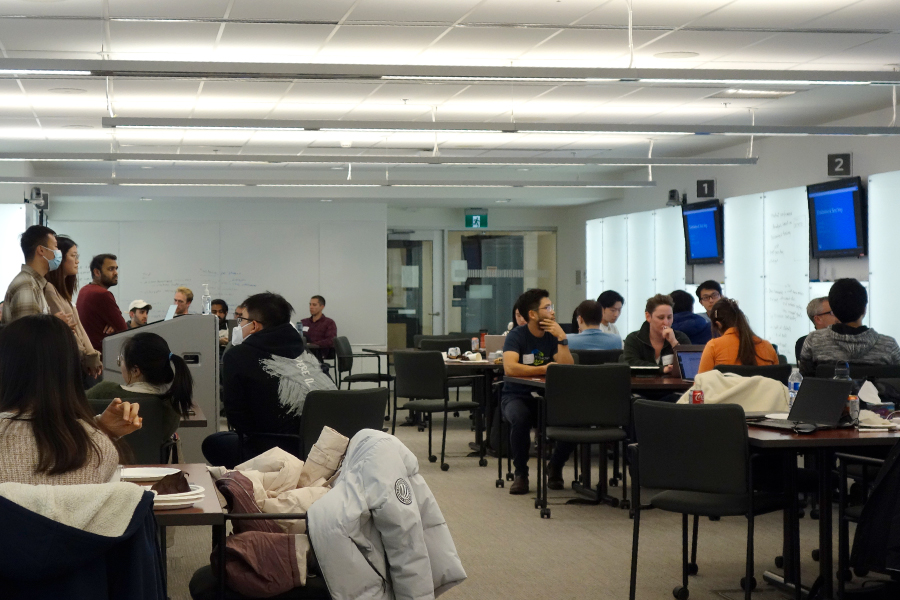The anticipation was palpable when Alison Myers, research analyst at UBC Sauder Business School, and Will Engle, strategist, Open Education Initiatives at the Centre for Teaching, Learning and Technology (CTLT), kicked-off UBC’s 8th Learning Analytics Hackathon on November 5, 2022. In front of them, 100 undergraduate and graduate students coming from many departments were spread into 12 groups. The teams were then tasked with optimizing their learning experience by analyzing real course data from Canvas (UBC’s primary learning platform for delivering online course content), prototyping their ideas and presenting their findings. The only guideline? To “create, design, and explore something cool”.
“This edition of the Hackathon was pretty unique since, for this year, we gave participants access to a large amount of data from a real-life UBC Canvas course,” explains Justin Lee, programmer analyst at the CTLT and one of the organizers mentoring students throughout the day. “The data has never been so granular and transparent. Students got to work with the same sets of data that UBC overall has access to.” To make the sample as authentic as possible, the team kept the data cleaning to a minimum on purpose, without full documentation, having inconsistencies in field names, and so on.
The organizing team had also removed dates and student information from the sample to ensure anonymity, as Justin explains. “Student privacy is a very important topic at UBC. To ensure no personal information was included, we provided only discussion meta-data, obfuscated the timestamps, hashed all unique course and students’ identifiers, and five staff members reviewed the final data in addition to the instructor who participated.”

Throughout the day, the team of organizers supported many students with their projects.
An intense learning (by doing) experience
By definition, Learning Analytics sits at the convergence of learning, analytics, and human-centered design, making an event around this topic an ideal foundation for a collaborative project at the teaching and learning level. “These hackathons are really cool opportunities for students to get hands-on experience working with actual data and spend time prototyping ways to improve student learning,” Will explains. “They are also great in that they provide transparency and openness into how learning data and analytics are used at UBC, and give students an opportunity to learn skills and have agency in their own learning. I’m not aware of any other higher education institution doing this type of activity with its students.”
While previous editions of this event usually took place over a whole weekend, this year, participants had one day to brainstorm, prototype and present their projects. As a result, students needed to have a good understanding of data wrangling and analysis, code writing and familiarity with development platforms – like GitHub – to make the most out of the hackathon.
“In the past, the first day of the hackathon was mostly dedicated to orientations and introductory workshops on what Learning Analytics is, and on the second day students would work on their group projects,” Alison remembers. While this format was a great way to introduce what the technology can do, for this first edition since 2020 the organizers decided to focus on the project-development side of the hackathon.

Hackathon participants spent the day prototyping tools to improve their learning experience on Canvas.
A wide variety of projects presented
Participants spent the day brainstorming, asking organizers questions and bouncing ideas off each other for analytics projects ranging from Canvas dashboards, tools that evaluate student participation, to even a web browser extension that identifies what to study next.
“At every edition, I’m always impressed by participants’ enthusiasm and dedication,” Will remarks. “The fact that these students were willing to take a full day out of their weekend to develop projects that will impact the future teaching and learning experience at UBC, thanks to Learning Analytics, is awesome.”
Kristy Lui Mban, a Master of Business Analytics student participating in her first hackathon, really appreciated the atmosphere of the event as well as the opportunity to work with real data. “In our group, we developed a dashboard that summarizes student data on Canvas. I enjoyed working on this project because it was a mix of collaboration, compromise, and a way to apply concretely what we have been learning in class.”

Each group presented their project to all participants.
Toward the event’s conclusion, each group took five minutes to present their project before their peers. After these presentations, participants voted to elect the three most promising projects for further development. Selected groups will get to polish their prototypes and present them in front of a panel of experts from the UBC community.
The first group chosen to advance their project further used programming language Python and data visualization software Tableau to build a dashboard that aggregates raw Canvas data to help students identify in what areas to improve to perform well in their courses. The second team built a student performance add-on to Canvas that would help predict a grade thanks to machine learning. Members of the third project team built a prototype that lets instructors access untapped engagement metrics (e.g., discussions, assignments, course material engagement) to improve their teaching.
With hindsight, both Will and Alison were impressed with what students accomplished in a single day this year. “Every group improved Canvas in their own way, which will help both instructors and students improve their teaching and learning activities thanks to learning analytics,” Will summarizes. “Despite having messy data, and limited information and time, students were still able to create amazing projects,” Alison confirms.
The Learning Analytics Hackathon took place on November 5, 2022 in the Sauder Learning Labs, a space designed to facilitate teams in using critical thinking and analytical decision making to solve real-world problems. The event was hosted by the UBC Learning Analytics project, LAVA (Learning Analytics, Visual Analytics), and Sauder Learning Services, with staff volunteers from the Centre for Teaching, Learning and Technology.
